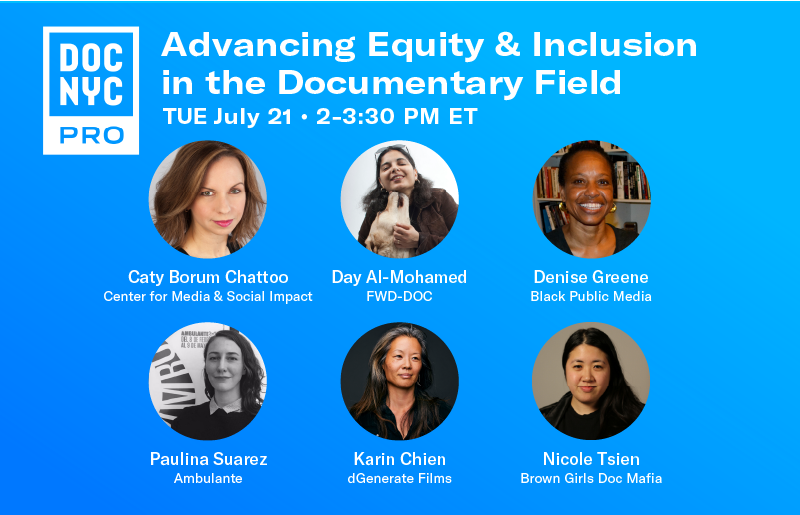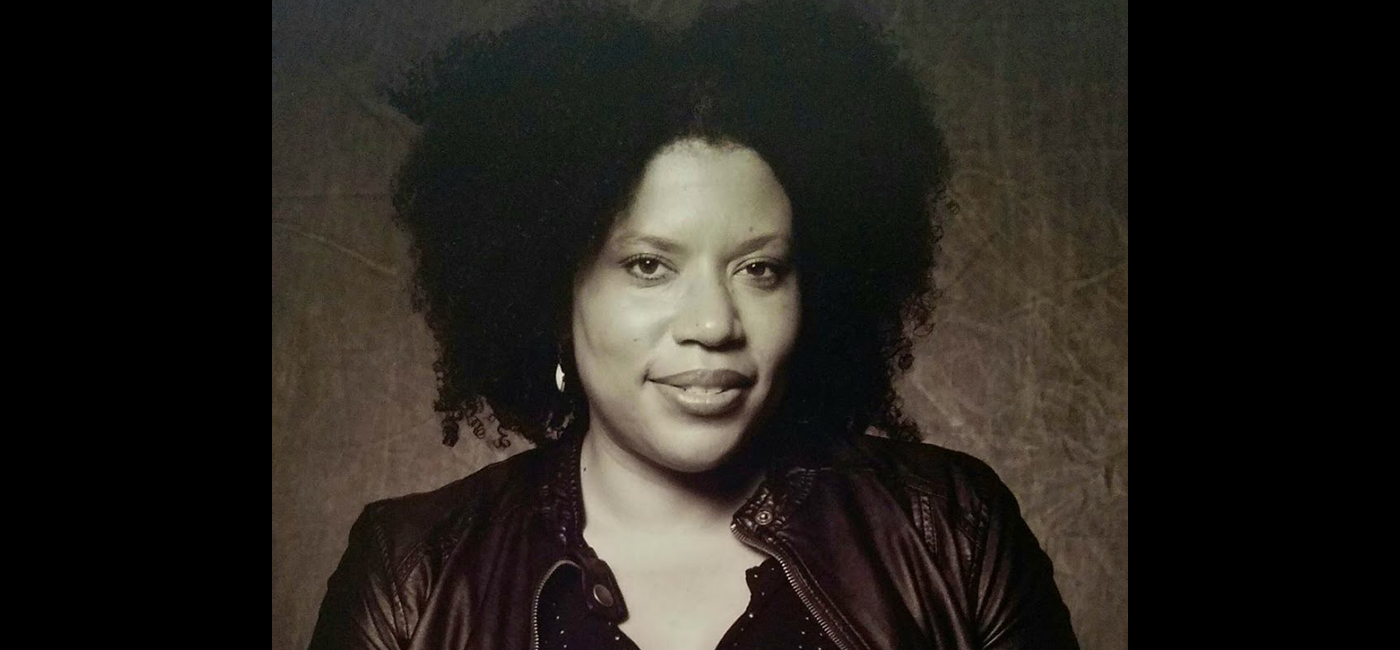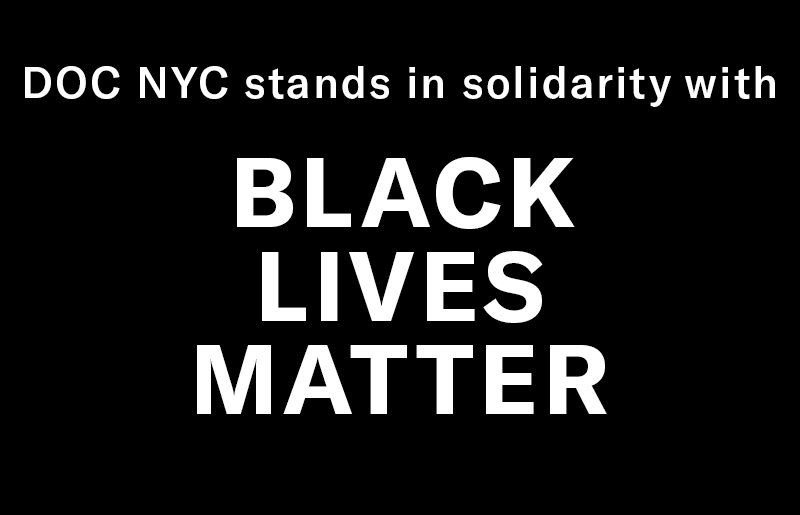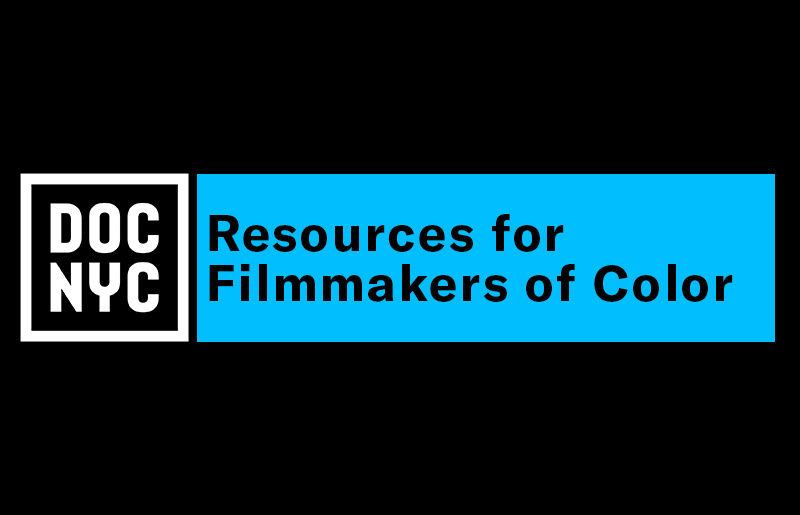Mass Incarceration and the Fight for Justice Ava DuVernay's 13th takes a hard look at the prison industrial system
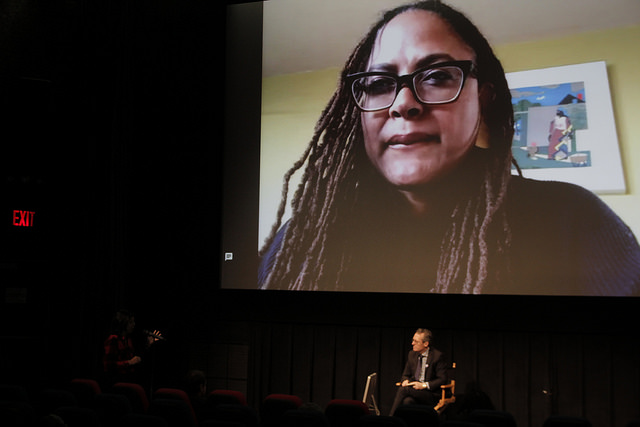
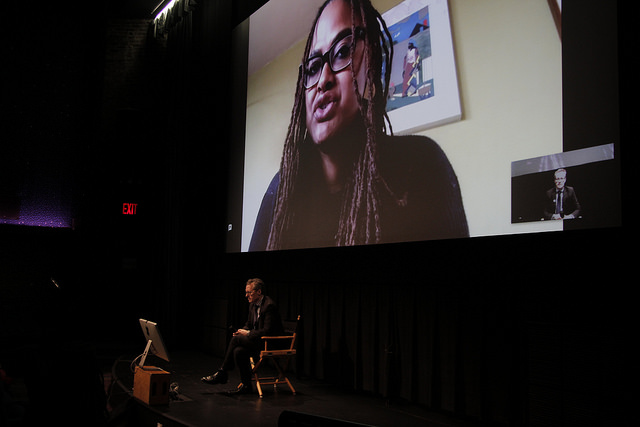
Written by Whitney Marin
The United States is 5% of the world’s population, yet holds 25% of the world’s prisoners. Mass incarceration and the criminalization of the African American identity is explored in the film 13th, directed by Golden Globe-nominated filmmaker Ava DuVernay.
DOC NYC Artistic Director Thom Powers introduced 13th and moderated a Q&A after the screening held at the IFC Center on Saturday, November 12th. The film is being shown as a part of DOC NYC’s 2016 Short List program, which has served as an accurate indicator of frontrunners for the Academy Award for Best Documentary. Joining the audience via Skype from Los Angeles, DuVernay is currently filming A Wrinkle in Time, making history as the first woman of color to direct a feature film with a budget over $100 million.
Since her breakout year in 2014 with Selma, DuVernay has been busy. This year alone, the filmmaker directed two documentaries, August 28th: A Day in the Life of a People, which opened the unveiling of the Smithsonian’s National African American History Museum in September, and 13TH, and she wrote, directed and executive produced Queen Sugar on OWN, her first foray into television.
Seminal figures of the academic and activism communities are at the core of 13th, and DuVernay uses both archival and contemporary media to illustrate an origins story of the world’s largest prison-industrial complex.
The U.S. had a relatively stable prison population up until 1970, following the heat of the Civil Rights Movement, when there were just over 300,000 incarcerated. As of the year 2000, the prison population had skyrocketed to 2 million. DuVernay employs a powerful collective of experts such as Michelle Alexander, Bryan Stevenson, Henry Louis Gates, Angela Davis and others, to follow the social and political movements since 1865 to present that have shaped the America we know today. The year marks the passing of the 13th amendment to the constitution, abolishing slavery with the exception of those convicted of a crime. Not soon after its passing, droves of newly-freed slaves were imprisoned and forced back into labor under the auspices of the law.
“It took 2 years to make the film. It’s not a one topic doc, it’s about a system that has various layers, generations of deeply embedded junk,” said DuVernay. “So what it really was was 2 years of trying to be disciplined, because we had our thesis and I had to just keep following that. Also we had about 1,000 hours of the real racist, violent footage and that took some time to get through, just from a place of self-care. I had to assess how many beatings to show, how many lynchings, how far to show it. So that took time.”
DuVernay was an African American studies major at UCLA and says she came from a household immersed in black liberation theory. When Netflix’s Lisa Nishimura contact her after the success of her film Selma in 2014 (for which she was nominated for a Golden Globe) and offered a no-limits opportunity, DuVernay was keen to delve into the topic of criminalization. 13th is her fourth documentary and her intent was to create a holistic film that connected the dots of the full continuum of history of mass incarceration.
“I don’t know anything now… I just cant wrap my mind around this new reality just yet,” commented DuVernay regarding the recent Presidential Election results when asked how it would be possible to make the film required viewing. “If it wasn’t Thom Powers and DOC NYC I probably wouldn’t get in front of a microphone because I’m still flabbergasted… It’ll be forward thinking people like us to get it out there and pass it around.”
Whitney Marin is a freelance writer and contributor to the DOC NYC blog.
